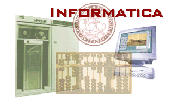Leonardo Lesmo, Livio Robaldo, Jelle Gerbrandy, Serena Villata
Semantic Underspecification
Semantic Underspecification aims at devising a formalism able to encapsulate scope ambiguities into a single compact structure. By means of an underspecied formula, it is possible to preserve compositionality without artfully casting pure semantic ambiguities into syntactical ones, as in standard Montagovian approach. Furthermore, since the knowledge needed to disambiguate semantic ambiguities is not usually available during the processing of the sentence, an underspecified formalism allows to store ambiguities until the knowledge needed to solve them become available.
[Robaldo 07] proposes a new underspecified semantic formalism, called Dependency Tree Semantics (DTS), based on (Skolem) dependencies between sets of involved entities. DTS is idiosyncratic and depends on a specific syntactic theory, namely Dependency Grammar; this allows for an easy syntax-semantic interface with respect to a Dependency Tree. Furthermore, in DTS it is possible to incrementally insert dependencies among quantifier, thus enabling partial disambiguations. Finally, DTS is able to represent the so-called 'Branching Quantifier' readings, which have been scarsely taken into account in other approaches to Underspecification.
Currently, research in DTS aims at extending the linguistic coverage of the formalism.
Discourse Semantics
An important aspect of discourse understanding and generation involves the recognition and processing of discourse relations. These are conveyed by discourse connectives, i.e., lexical items like "because" and "as a result" or implicit connectives expressing an inferred discourse relation. The NLP group partecipates in the Penn Discourse Treebank (PDTB) project, funded at the Institute for Research in Cognitive Science, University of Pennsylvania.
The Penn Discourse TreeBank (PDTB) provides annotations of the argument structure, attribution and semantics of discourse connectives. The NLP group focuses on the latter, by contributing in the definition of the sense tags used to annotate the discouse connectives. Sense annotations specify the sense of the connective in cases of ambiguity, and in every case they provide a semantic description of the relation between the arguments of connectives.







